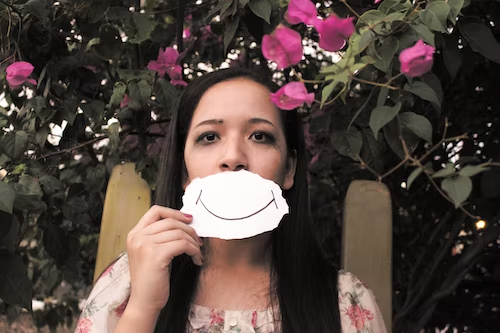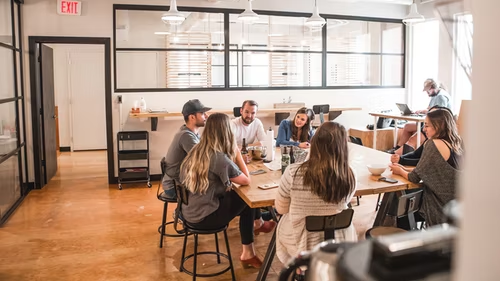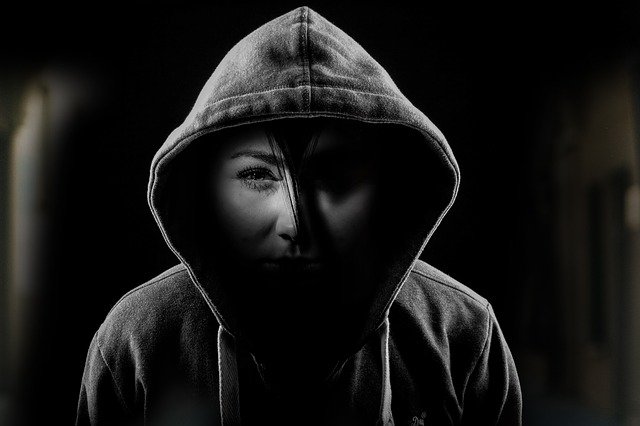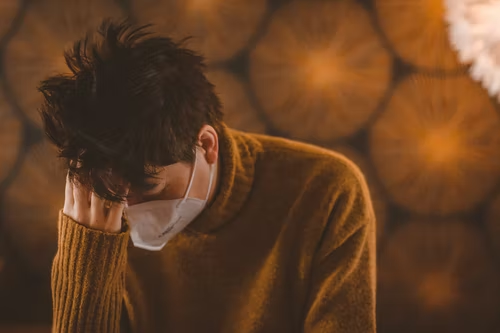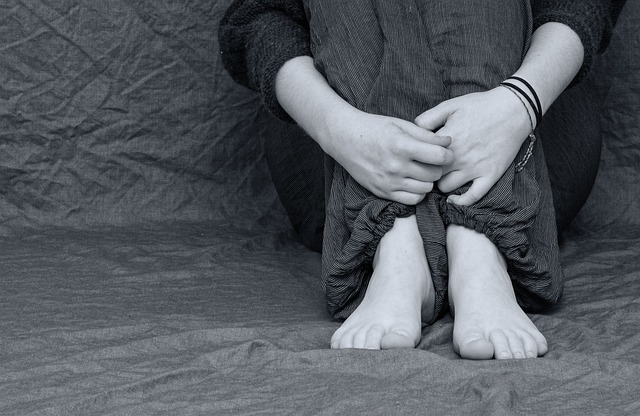7 Ways on How Coffee and Beer Affect People With Mental Health Issues

In the last 100 years or so, innovations in mental health care have been a notable occurrence. More and more people are diagnosed with mental health issues and are treated better than ever before through medication, therapy, and other methods. But what role does coffee and beer play in all of this?
People who are struggling with depression, anxiety or other mental health issues tend to rely on coffee as a way to feel more alert. The problem is that the effects of caffeine can be much worse for people with mental health disorders. Here's how:
- Can Increase Anxiety
If you're a person with a mental health issue, and you're trying to feel better, caffeine may not be your best friend.
Caffeine has been known to increase anxiety in people who are genetically predisposed. It's also known to cause jitteriness and nervousness in people who drink it. When these feelings become chronic, they can lead to more serious anxiety disorders.
Caffeine does not cause anxiety or panic attacks outright. However, if you are already prone to them, caffeine will make them worse or bring them on more often. That's because caffeine stimulates the central nervous system, which can cause your heart rate and blood pressure to rise. It also triggers the adrenal glands to release adrenaline — the “fight or flight” hormone associated with stress and anxiety.
- Can Cause Insomnia
Many people with mental health issues are aware of the fact that coffee can cause insomnia. But what they don't know is that it can actually cause insomnia to people who are healthy as well.
The stimulating effects of coffee are often helpful for people trying to stay awake at work or school. But it can also have some negative side effects like sleep deprivation, rapid heartbeat, and insomnia. These problems can make any underlying mental health issues worse and more debilitating.
The reason why is because coffee contains caffeine. Caffeine is a stimulant and it is something that can cause you to have a bad night's sleep.
There are many different things that you should be doing if you want to stop drinking coffee and get a good night's sleep. One of the first things that you need to do is stop drinking coffee altogether.
This will help you to get a better night's sleep because your body will not have to deal with the effects of caffeine anymore. You will also be able to wake up much easier in the morning because your body will not be as tired from having a bad night's sleep.
Another way for you to stop drinking coffee and get a good night's sleep is by making some changes in your diet. When you are eating foods that contain caffeine, your body will not be able to get rid of the caffeine in your system as quickly as it would normally do so.
- Can Make Depression Worse
If you’re a coffee drinker, you probably already know that it has plenty of health benefits. It can help improve your memory, make you more alert, and even help prevent cancer.
But one category that’s not often mentioned? Depression.
When you're struggling with depression, getting out of bed in the morning can seem impossible without a cup of coffee to perk you up, but drinking coffee won't solve your underlying problems and may even make them worse. Besides the anxiety that coffee can cause, it also tends to increase irritability and mood swings for people who are clinically depressed.
A new study suggests that people who drink four or more cups of coffee per day are more likely to suffer from depression — and this risk is even higher if they already have a mental health condition.
The study, which was published in the Journal of Psychiatric Research, found that those who drank four or more cups of coffee per day were 53% more likely to develop depression than those who drank less than four cups per day. And for people with a pre-existing mental health issue — those with bipolar disorder, for example — drinking four or more cups of coffee per day increased their risk of developing depression by an astonishing 400%.
The link between caffeine and mental health isn’t entirely unprecedented. Caffeine may act as a mild antidepressant by boosting dopamine levels in the brain. But some research suggests that it can also exacerbate the symptoms of anxiety and other mood disorders like bipolar disorder.
- Can Cause Panic Attacks
Do you drink a cup of coffee in the morning? Do you rely on it for an energy boost? If so, you're not alone. Many people enjoy drinking coffee because of the way it makes them feel. It's a stimulant that increases energy levels and enhances focus and concentration. For most people, drinking a cup of coffee every now and then is perfectly fine.
But what if you're one of the many people who suffer from mental illness? If so, you might want to think twice before you have your next cup of coffee because caffeine can cause panic attacks in people with anxiety disorders.
Caffeine is known to increase anxiety and cause panic attacks in susceptible individuals. Panic disorders are characterized by unexpected bouts of fear that last for several minutes at a time. People often experience heart palpitations, sweating, shaking, shortness of breath and feelings of impending doom during these episodes. Panic attacks typically occur without warning and can be brought on by either internal or external triggers.
One potential trigger for panic attacks is caffeine, which is found naturally in coffee beans as well as other foods such as chocolate and tea leaves. In addition to being naturally occurring in certain foods, caffeine is also added artificially to many energy drinks on the market today.
- Coffee can increase your stress levels
If you've ever gone out of your way to get yourself a cup of coffee when you're stressed out, then you might have noticed that it doesn't really help.
While caffeine is known to help with working memory and vigilance, a recent study found that it can cause an increase in the stress levels of people who are suffering from mental health issues.
This is because coffee actually increases your stress levels rather than decreasing them. It gives you a quick boost of energy, but also increases your cortisol levels. (Cortisol is known as the ‘stress hormone'.)
When cortisol levels are high, we're often left feeling anxiety, irritability and fatigue. So if you're stressed out, maybe consider drinking something else instead, such as herbal tea or water.
The researchers believe as well that the increased caffeine sensitivity may be due to differences in how dopamine is released in the brain as a result of caffeine intake, which could explain why individuals with mental health issues are more likely to experience increased stress and anxiety when consuming caffeinated beverages.
How about Beer?
Beer has been a staple of social life for centuries. It’s easy to drink, and it’s associated with relaxing and having a good time. To many people, drinking beer is simply a regular part of their social life, something they do to unwind after work or on the weekends.
However, there are many people who use alcohol in ways that aren’t so healthy. They may use it to cope with stress or other emotional issues, or they may no longer be able to tell when they’re drinking too much.
Mental health issues can cause someone to misuse alcohol by using it as a coping mechanism for anxiety or depression. Frequent alcohol abuse can also lead to mental health issues over time. It’s important for anyone who has these issues to make sure that their drinking doesn’t get out of control, especially since alcohol is such a widespread part of our culture.
Here are five ways that alcohol affects people with mental health disorders:
1.Alcohol is a depressant
For many people, drinking helps to alleviate symptoms of depression and anxiety. But for some people, alcohol is a depressant. For them, drinking beer can make their symptoms worse.
And many people who struggle with mental health issues are also likely to have other risk factors for alcohol abuse—a history of trauma or abuse, social isolation, or access to alcohol at an early age.
Beer is both a depressant and a diuretic, which means that it can cause dehydration and exacerbate the symptoms of depression and anxiety.
There are many other reasons why beer might be bad for people with mental health issues.
Beer has a high amount of sugar in it, which can lead to weight gain and obesity.
Beer also contains yeast, which is used to ferment the alcoholic beverage. Some people have allergies to yeast, so they may not be able to consume beer safely without risk of an allergic reaction.
- Can worsen symptoms
Drinking may seem to help symptoms at first, such as helping someone become less shy or more talkative, but it can make things worse in the long-term.
Alcohol can make feelings of depression and anxiety worse. It can also affect sleeping patterns. This may lead to mood swings and irritability the following day.
There is a lot of information out there on the influence of coffee and beer. Many will argue that these two substances have a positive impact on mental health, while others will say they can be harmful. It all depends on how one uses the substances, in addition to other factors.
